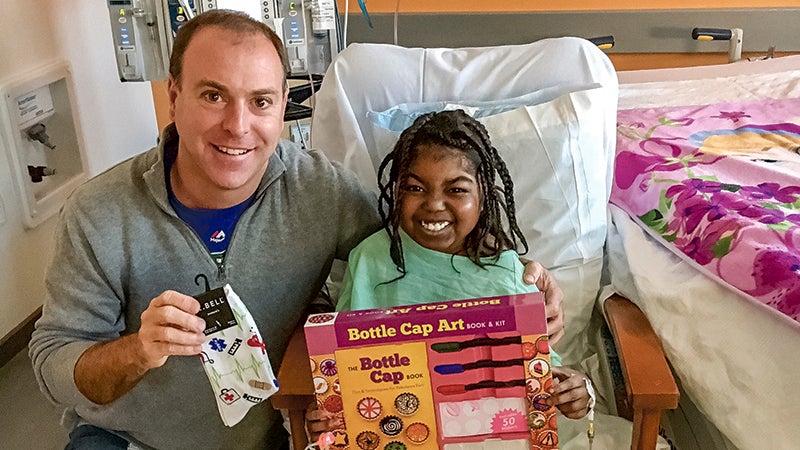Paralyzed with uncertainty
Published 10:21 pm Thursday, October 16, 2014

Pictured on her front porch with her youngest, 18-month-old Mary Alice, Chrystiane Grubbs endured a rare variant of hyperkalemic periodic paralysis without effective treatment for years, before it was diagnosed in 2012 with a simple DNA test.
About six years ago, Chrystiane Grubbs was left mystified — as apparently were several doctors — when she began experiencing localized paralysis three or four times a week.
Either in her left leg, both legs or in her left side, the attacks would last a couple of hours. The next day, she would be left feeling weak.
As winter approached in North Carolina that year, the attacks worsened. In November, Grubbs had what she describes as a mild seizure, as well as a whole-body paralysis attack.
“It started in my left leg, then moved up my arm,” said Grubbs, 35, now living in Suffolk. “Then I couldn’t swallow, couldn’t speak. They thought I had gone into a comatose state, but I was aware.
“It was scary. At the time, I had a 3, 4 and 6-year-old that I was the primary carer of. My husband was working, and I was working at school with at-risk students. It was very common for kids to see me walking down the hall with a cane, dragging part of my body.”
Through DNA testing, eventually Grubbs was diagnosed with a rare variant of hyperkalemic periodic paralysis, a genetic disease affecting humans and horses.
Grubbs says she’s speaking out about her ordeal — and her long road to a diagnosis — to encourage others facing mystifying medical conditions to not give up on getting answers.
After that major attack in November 2008, Grubbs was hospitalized for several weeks. First they thought she’d had a stroke. Then they investigated multiple sclerosis. There were weeks of tests, but nothing was confirmed.
Less than a week after leaving Chowan Hospital, Grubbs had another major attack. She returned to the hospital, but she then demanded to go to Sentara Norfolk General Hospital.
There, the previous tests were repeated. Doctors also ordered a psychiatric evaluation, wondering if it was stress-induced, Grubbs says.
That was ruled out. At about this juncture, periodic paralysis was raised as a possibility, but it never went anywhere, according to Grubbs.
Next, a Suffolk doctor — again — suspected multiple sclerosis. “I can’t tell you how many lumbar punctures I had,” Grubbs said.
Pinning down a diagnosis was complicated by other medical conditions, Grubbs says. But eventually she found a doctor she wanted to see — Kamal Chemali, of Virginia Neurology.
He told her periodic paralysis could be confirmed with a DNA test. A couple of months later, the results came back positive.
Grubbs’ condition is now controlled with Mexiletine, which ordinarily treats heart arrhythmia. “I would say it’s a great success, because I have gone from having four or five attacks a week to having four or five a season,” Grubbs said.
She’s had only one full left-side attack since being on the medication, she said, plus she now knows cold is a trigger.
“It was torture,” Grubbs says of her road to diagnosis and effective treatment. “I felt so alone. There are so many chronic illnesses that people don’t know what it is.”
Grubbs urges the medical community to be more aware of the possibility in their patients of rare conditions such as hers.
Faith helped her through, she said. She also singles out her husband for praise.
“He would pick me up and put me on the toilet, pick me up and put me on the bed,” she said. “It was my faith in the Lord and support of my husband that kept me positive and helped me through.”





